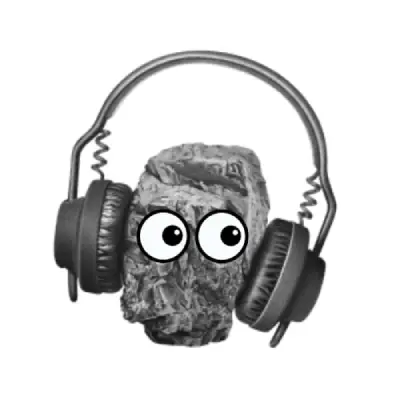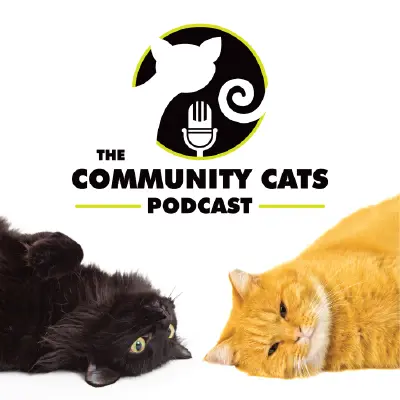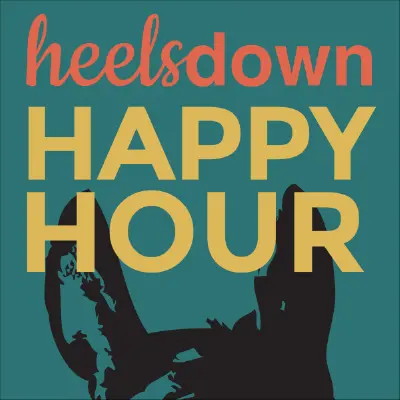Podcasts about Pets & Animals
Episodes about Pets & Animals
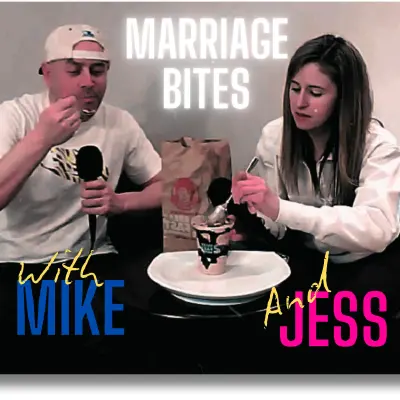
Happy anniversary to us! In this episode of Marriage Bites, we celebrate 13 years of wedded bliss the only way we know how: with a spicy chicken sandwich from Wendy’s, way too many bathing suits, and one pending vasectomy. Jess and Mike catch up on a summer full of chaos, nostalgia, and carbs—including a surprisingly heartfelt drive-thru encounter, snack obsessions, and the ever-evolving saga of parenting two growing kids. Also: why fast food collabs are designed to go viral (not be good), how Slack became the third wheel in our marriage, and a PSA about Yeti lids.
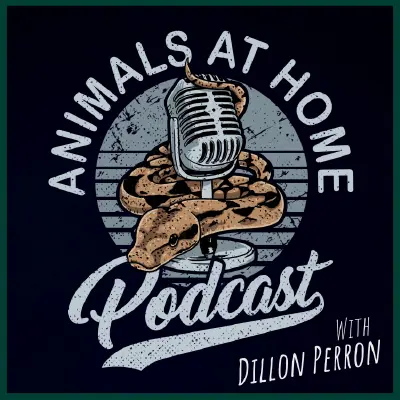
Jul 09, 2025
232: Abandoned Pet Reptiles: A Hidden Crisis and How to Fix It | Jordan Lyndon - AAH
Animals at Home Network ❭
Jordan Lindon of Midland Reptile Rescue in Birmingham, UK discusses his experience in running his reptile rescue, the finances involved, the importance of a strong community, and the operations day-to-day. This episode is a great one to tune into if you are someone with aspirations to run a reptile rescue; this truly goes over Jordan’s experience and viewpoints in the function of a reptile rescue in the community. Jordan also talks about mistakes to avoid, legislation viewpoints, species he sees frequently surrendered, and his set-up from taking in surrenders to adopting out. SHOW NOTES: https://www.animalsathomenetwork.com/232-midlands-reptile-rescue/SPONSORS: Visit The BioDude: https://www.thebiodude.com/ Visit Zoo Med Labs here: https://zoomed.com/JOIN US ON PATREON: https://www.patreon.com/animalsathomeLINKS FROM THE EPISODE:Midland Reptile Rescue Facebook: https://www.facebook.com/birminghamreptilerescue/Midland Reptile Rescue TikTok: https://www.tiktok.com/@midlandsreptilerescueMidland Reptile Rescue Instagram: https://www.instagram.com/midlandsreptilerescue/Photos and Video in Episode:https://www.instagram.com/midlandsreptilerescue/WE DISCUSS:00:00 Introducing Jordan Lindon - Midland Reptile Rescue2:38 Coming Up: Zoo Med ReptiTemp Dimming Thermometer3:10 Coming Up: The Bio Dude Bioactive Substrates + Dietary Supplements3:45 Welcome Jordan + Motivations To Start a Reptile Rescue and Expenses8:27 Demand For The Reptile Rescue + Looking For Homes12:25 Home Set-Up of The Rescue + Finances15:24 The Wrong Side Of Rescues + Legislation17:35 Memorable Surrenders19:38 Legislation in Banning Reptiles + Large Snakes21:26 How Many Species Does Jordan Have Now + First Aid in Reptiles23:21 How Do Animals Get Adopted Out?24:31 Zoo Med ReptiTemp Dimming Thermometer26:02 Rescues Being a Safety Net29:42 Tips in Starting a Reptile Rescue32:08 Care Resources + Strange Species34:28 The Bio Dude Bioactive Substrates + Dietary Supplements35:28 Jordan’s Personal Animals37:45 Transitioning Homes For Reptiles40:44 Jordan’s Feelings On Pet Shops, Breeders, and Expos46:24 Abandoned Reptiles Experiences48:06 Commonly Surrendered Species49:24 Plans For Youtube Channel/Social Media + Profits53:16 Goals in Rescuing + Education Services54:47 Major Mistakes to Avoid + Quarantining57:18 The Importance of Rescues59:19 Closing Thoughts
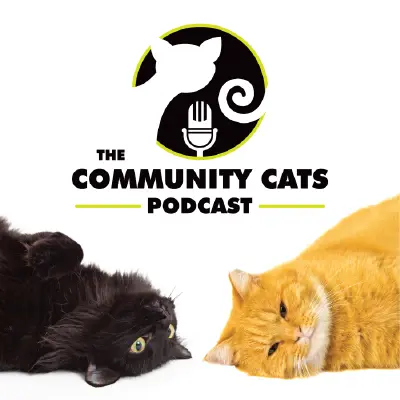
Jul 08, 2025
Let Meowt! How Rikers Island Is Saving Its Cats, Featuring Gloria Murli of Rikers Island Cat Rescue and Mike Phillips of Urban Cat League
The Community Cats Podcast ❭
“My biggest challenge is making sure the welfare of these cats is taken care of. I’ll never desert these cats. Never.” - Gloria Murli This episode is sponsored-in-part by Maddie’s Fund and the Rescue Cleaners and Disinfectants. What happens when a prison island becomes a refuge for hundreds of community cats? In this powerful episode, host Stacy LeBaron sits down with Gloria Murli, retired Rikers Island captain, and Mike Phillips of Urban Cat League to explore the decades-long, compassionate mission to care for and manage the cat colonies of Rikers Island. Gloria shares how a promise to a fellow officer turned into a lifelong commitment to Rikers’ feral cats, evolving into one of the nation’s largest TNR (Trap-Neuter-Return) initiatives inside a correctional facility. Together with Mike, they recount the logistical, emotional, and bureaucratic challenges of working within a highly secure, sprawling facility, where cats once numbered over a thousand and lived in hidden colonies across 400 acres. Now, the project is taking an inspiring next step: creating a dedicated sanctuary on Rikers Island, transforming a former softball field into a safe haven for cats. This model sanctuary will not only stabilize the cat population but also serve as a workforce development opportunity, training low-security inmates in animal care—providing skills and hope for post-incarceration employment while improving animal welfare. We discuss creative solutions for feeding, the importance of partnerships with the Humane Society of New York, and how these lessons can guide sensitive area TNR and community cat care nationwide, from airports to correctional facilities. If you’ve ever wondered how passion and persistence can drive systemic change for cats, this episode will inspire you to believe in what’s possible—no matter how challenging the environment. Press Play Now For: The untold story of Rikers Island’s hidden cat colonies. How TNR became possible inside one of America’s largest prisons. Challenges of managing 27 feeding stations on a secure island. Why building trust with authorities is key to community cat projects. How the sanctuary model may revolutionize cat care in sensitive areas. Opportunities for incarcerated individuals to gain animal care skills. Creative fundraising ideas, including sponsor-a-feeding-station models. The power of long-term commitment to transform cat welfare. Resources & Links: Rikers Island Cat Rescue (RICR): Donate, view wishlists, or sponsor a feeding station to support the cats of Rikers Island. (http://ricr.org) Urban Cat League (http://urbancatleague.org) Humane Society of New York (http://humanesocietyny.org) Sponsor Links: Maddie's Fund (https://www.communitycatspodcast.com/maddies617) Rescue Cleaners and Disinfectants (https://communitycatclinic.com) Follow & Review We’d love for you to follow us if you haven’t yet. Click that purple '+' in the top right corner of your Apple Podcasts app. We’d love it even more if you could drop a review or 5-star rating over on Apple Podcasts (https://podcasts.apple.com/us/podcast/the-community-cats-podcast/id1125752101?mt=2). Select “Ratings and Reviews” and “Write a Review” then share a quick line with your favorite part of the episode. It only takes a second and it helps spread the word about the podcast.
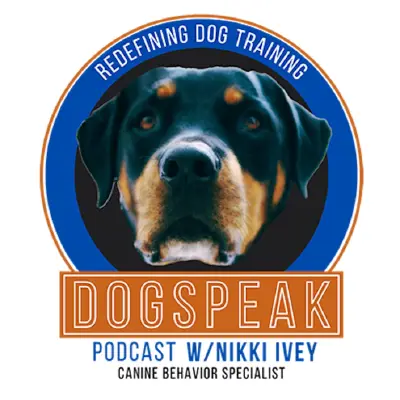
In this episode, Nikki shares practical life hacks you can start using today to help your dog navigate tough situations—like greeting guests, encountering scary objects, and decompressing after a stressful day. She also explains how talking to your dog like you would a three-year-old can make a big difference.

What’s Your “Line in the Sand” for Breeding
Host Laura Reeves is joined by Dr. Marty Greer for an important conversation about “what is YOUR line in the sand” when breeding dogs.
This is a conversation around breeding ethics and having a “mission statement” for your breeding program.
“I had a listener ask about a baby puppy with one testicle yoyoing and one maybe, maybe not there and what should they do? And Marty said, ‘Well, there's only a couple things and it won't take very long (to talk about), but I think that there's no reason not to breed that.’ And I'm like, wait, what? So, Marty, I want you to talk to me about why, because this was a very interesting perspective that had literally never crossed my mind.”
The conversation continues from there with Marty describing her “line in the sand” as deadly diseases. Her reasoning being the additional genetic diversity that comes when we don’t “throw out the baby with the bath water” for issues which do not actively impact a dog’s quality of life.
“The world according to Marty Greer is for me a level 1 is something that you don't have a life shortening, life altering disease from. It's a retained testicle. For me it's extra eyelashes. For me it's an entropian. For me, it's an umbilical hernia.
“For me, level 2 is something that requires chronic management, long term allergies. Thyroid disease, things that always need to be on medication. There's an ongoing expense. There's an ongoing thing that has to happen, but it's not serious.
“And for me, Level 3, are life threatening, life altering, life shortening diseases. This is my definition. For me, that's bad temperament. If your dog bites somebody, I don't think that dog should be in your gene pool. If I have to muzzle your dog to breed it, I don't think it should be in the gene pool. That for me is orthopedic diseases that are crippling. Hip dysplasia, elbow dysplasia, patellar luxation, all this stuff that happens orthopedically. And for me that's things like seizures, because I think seizures are life threatening.
“But that's my world. I live in a veterinary clinic. Remember, that's what I do every day. So I see dogs that come in with owners that are distressed, dogs that are dying, dogs that need to be euthanized. And so my perspective is going to be different than other people's perspectives because that's not the world they live in.”
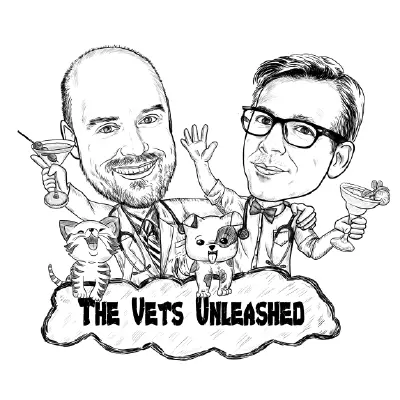
NSFW We’re getting into the first of our listener mail segments, and it’s the usual drugs and sex content you come here for week after week. What’s the appropriate level of embarrassment to feel after your vet surgically removes a sex toy out of your dog? If my dog starts acting funny after our walk through Portland, what are the signs for ingesting marijuana vs. methadone vs. methamphetamine? Does my dog lead a double life as a rock star with all these sex toys and drugs they’re ingesting? How can I lead a life more like my dog? You can get the answer to all these questions and more, this season on The Vets Unleashed! This Week’s Drink: The Foreign Body 1 oz Vodka 1 oz Dark Rum ½ oz Blue Curacao Simple Syrup (to taste) Lemon Juice (to taste) Raspberries (for foreign bodies)
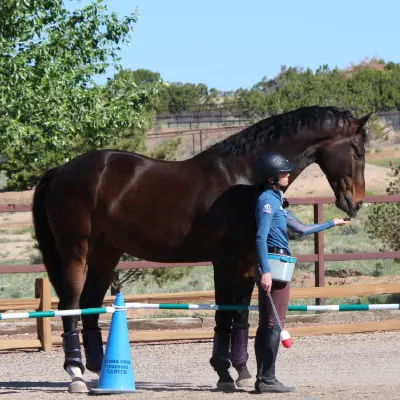
Ellie is fresh off a trip from New Mexico where she learned more about the world of positive reinforcement training about horses. We dive right in to learn more. And we caught up for the Kentucky 3-Day Event 4* winner ahead of his overseas trip to CHIO Aachen. Thanks for tuning in. Guests and Links Episode 137:Host: Justine Griffin, Award Winning Journalist with Down MagazineHost: Jessica Payne, International Event Rider for Payne EquestrianHost: Ellie Woznica Owner/Trainer of Double Barrel CreekGuest: Will ColemanFeatured Image: Courtesy of Ellie WoznicaDrink Recipe: Sante Fe SunsetLink: The FEI is doubling down on double bridlesLink: Study: Bias Against Thoroughbreds In Upper Level Eventing Is UnfoundedLink: Wild pony born without a hoof gets a prostheticProduct Review: Favorite fly remedies for summer time? | Kinetic Vet roll-on fly spray + dema clothsSubscribe: The Brief | Heels Down Spark | Donate | Our PatreonJoin our Facebook Group: Search for “Heels Down Happy Hour Podcast Lounge“This episode is presented by: Yanmar, Belt It Out Goods (Coupon code: “heelsdown20” dor $20 off through May), Horse Spot, and listeners like you! Thank you to our sponsors!
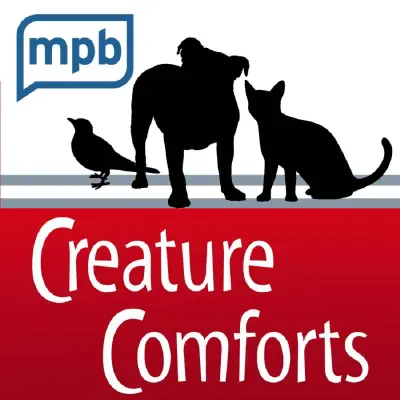
On Creature Comforts, Kevin Farrell is joined by Dr. Troy Majure, veterinarian at the Animal Medical Center in Jackson and Libby Hartfield retired director of the Mississippi Museum of Natural Science.Last week to open Creature Comforts, we discussed a few animal holidays and celebrations taking place this month. Among those we talked about, we celebrated June as National Pollinators month, so to keep in that spirit, today we’ll be talking about everyone’s favorite pollinators, the butterfly. Friend of the show Joe McGee joins us today to lend his expertise to the discussion.To submit your own question for the show, email us at animals@mpbonline.org or send us a message with the Talk To Us feature in the MPB Public Media App. Hosted on Acast. See acast.com/privacy for more information.
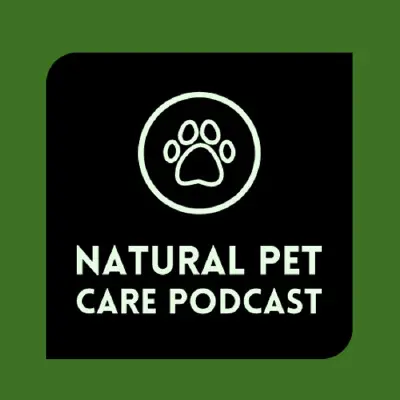
Send us a textIn this podcast Lori and Stephanie from Nature's Farmacy discuss Puppy Support for Fading Puppies.
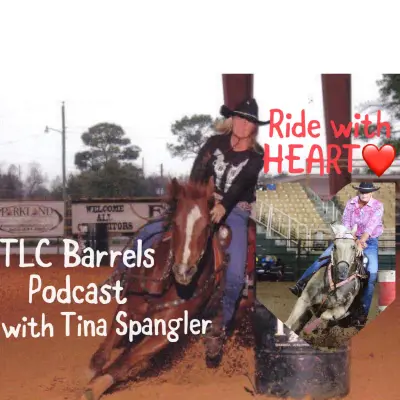
to learn more join at Tlcbarrels.com
